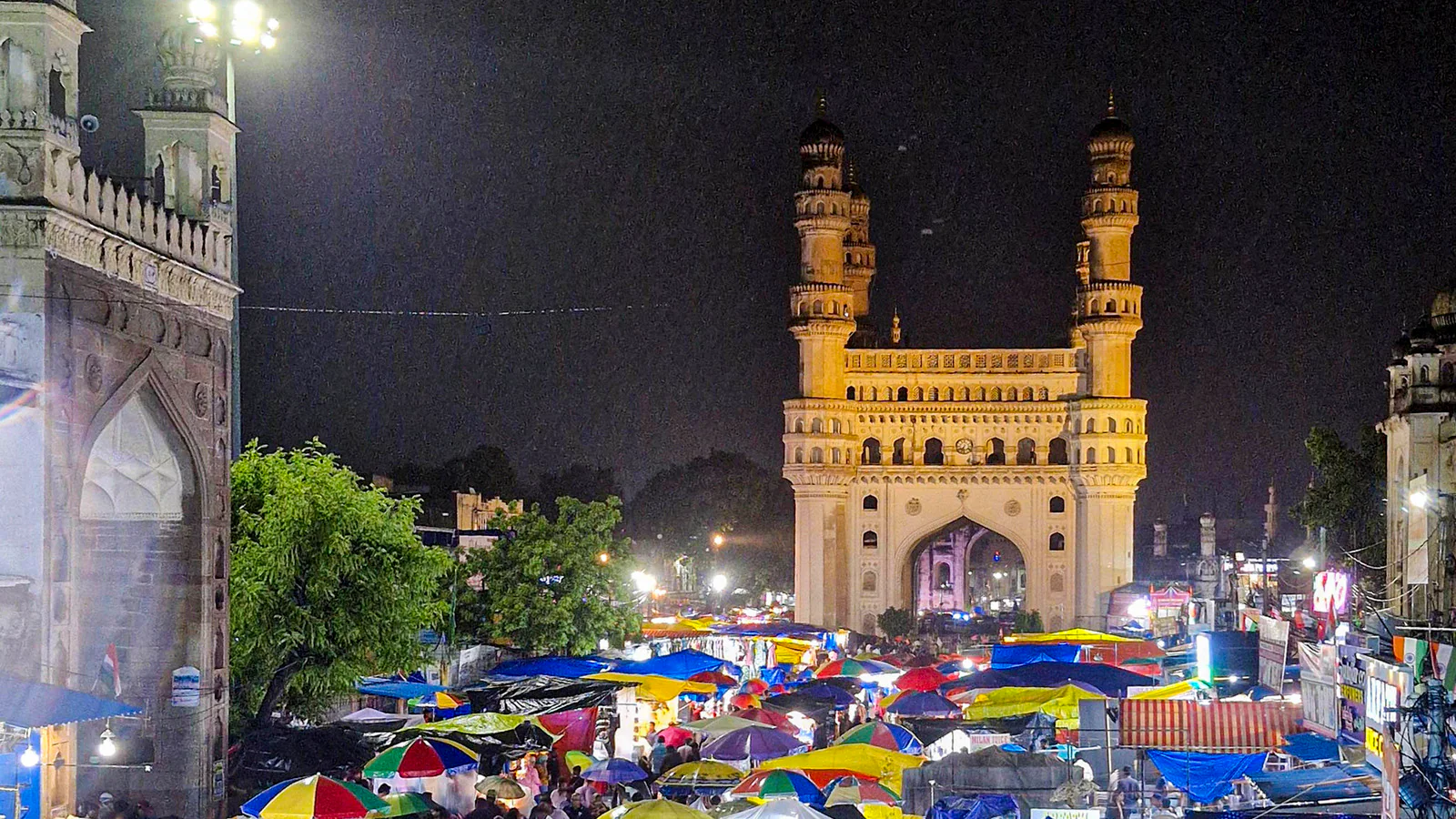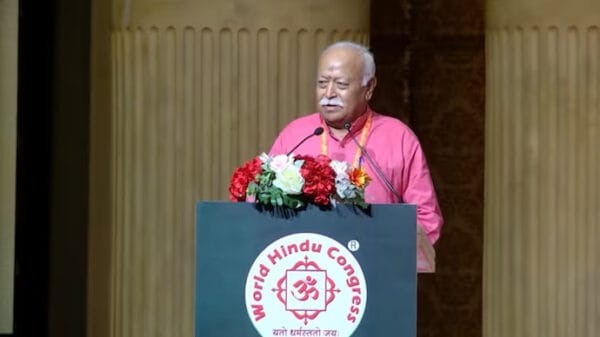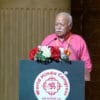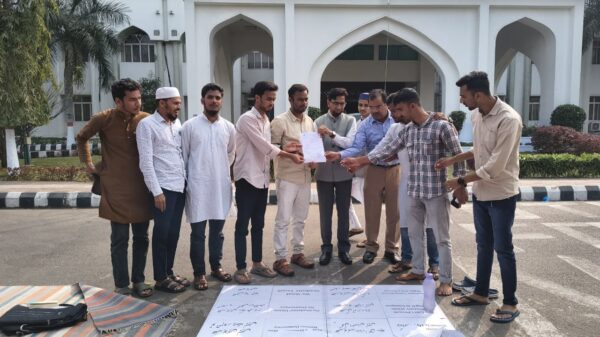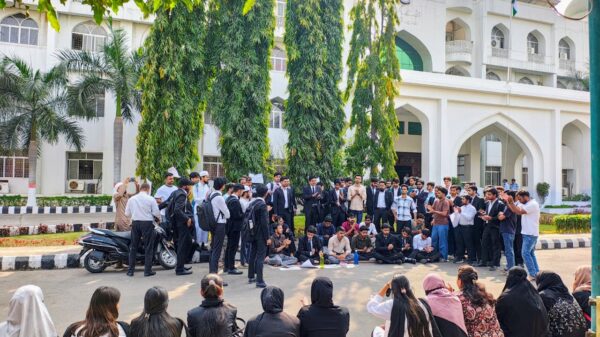Referencing Hyderabad by its alleged historical name, Bhagyanagar, the Rashtriya Swayamsevak Sangh (RSS) is set to host a four-day cultural festival in Telangana’s capital. Drawing thousands of attendees from across the country, the event aims to celebrate the city’s “unadulterated cultural and heritage.”
The event, which has its theme “Reclaiming Our Legacy,” include exhibitions showcasing the city’s Hindu roots, talks on its history, and performances of traditional arts.
Speaking at the inauguration, Mohan Bhagwat, the head of the RSS, claimed that Bhagyanagar is Hyderabad’s “original name” and that it is evidence of the city’s Hindu roots, predating the Islamic era that greatly influenced its present identity.
Even though the festival featured local products, spiritual talks, and classical dance styles, it was difficult to overlook its underlying political overtones. Union Minister G. Kishan Reddy was one among the BJP leaders there, and he reiterated the RSS’s ideas. He declared, “This is about recognizing our heritage and teaching our future generations to be proud of it.”
As quoted by News 18.com, Prajna Pravah chief and its national convener, J Nandakumar, stated, “For us, the city has always been Bhagyanagar Mahanagar and will remain so. We want it to be officially recognized as such in the future as well. The name Bhagyanagar came from the ancient temple of Bhagya Laxmi. This is the Bharatiya name of the place.”
“Hyderabad’s roots lie in Bhagyanagar, which stands for the goddess Bhagyalakshmi. Our objective is not to erase history but to highlight the suppressed stories of its glorious past,” Bhagwat said.
Asaduddin Owaisi, the chief of AIMIM, denounced the event as an “attempt to communalize the city.” “These acts are needless and polarizing, and Hyderabad is a symbol of unity in diversity,” Owaisi stated.
Opposition politicians expressed disapproval of the event’s symbolic placement of a saffron-flagged replication of the Charminar.
The festival and rebranding continue to divide the community. Some citizens expressed support for the project, pointing to their pride in their cultural heritage, while others expressed disagreement about the city’s identity being taken advantage of for political purposes.



















































